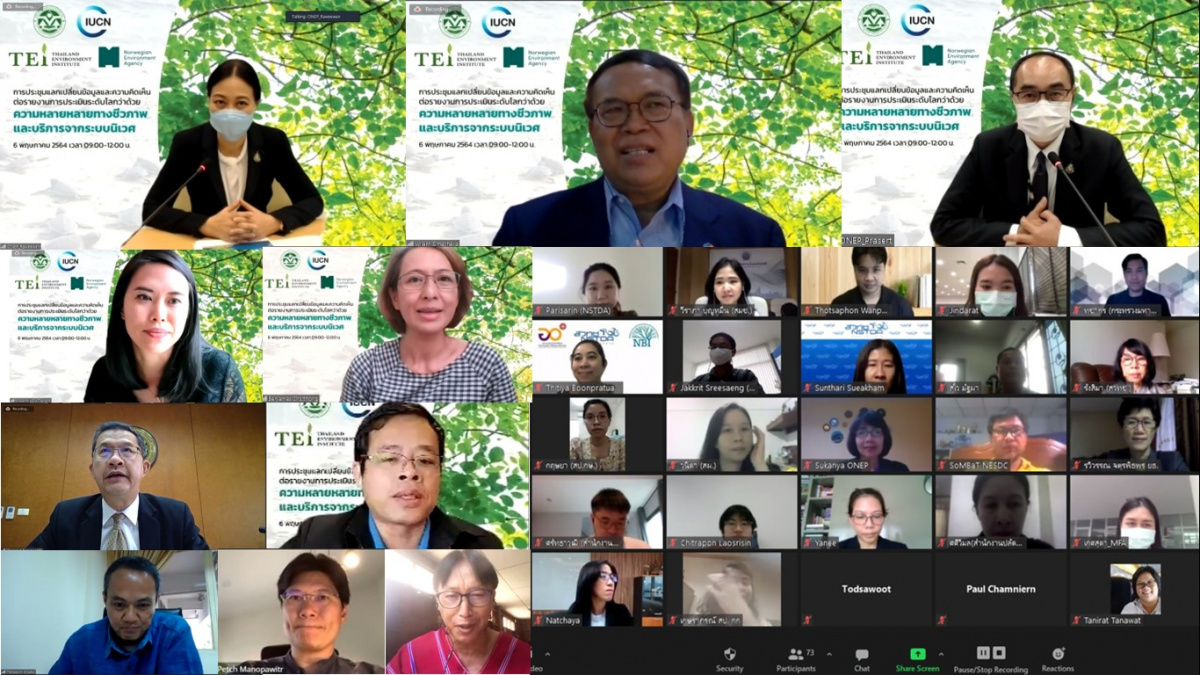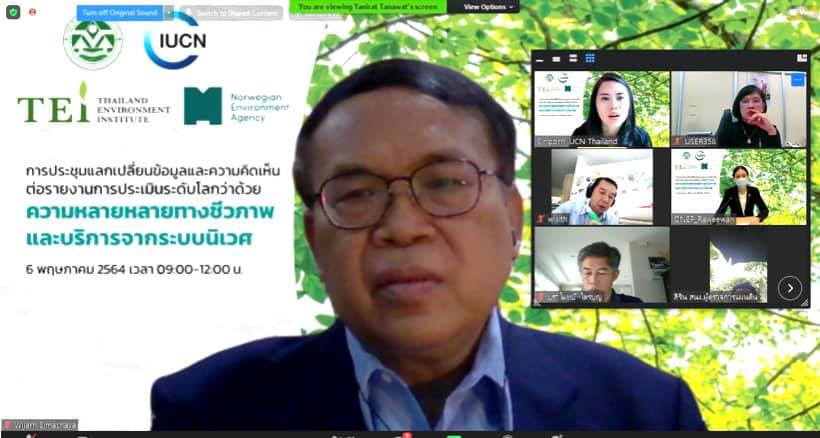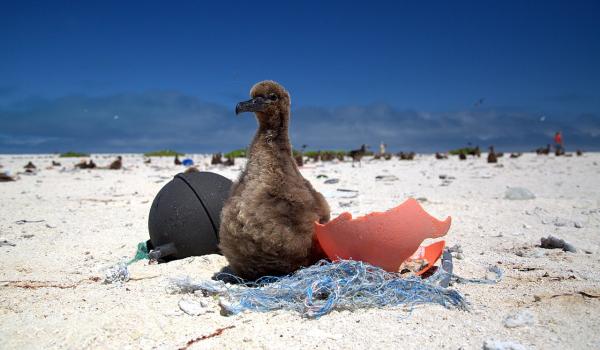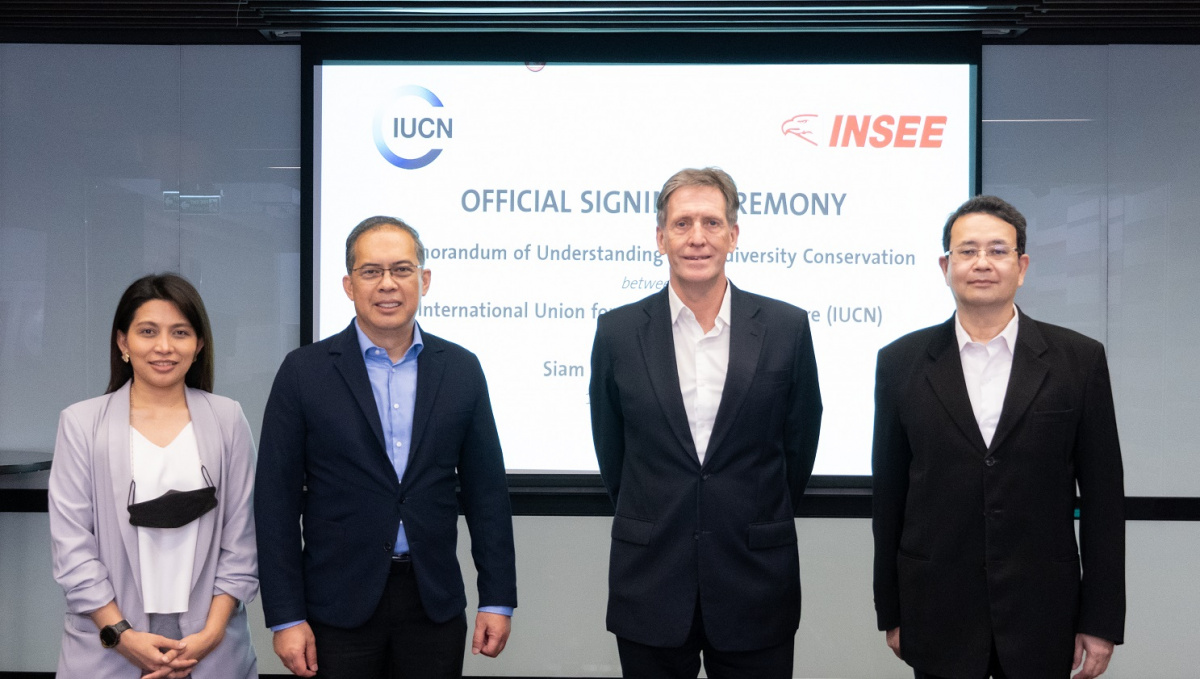Introducing the Thai translation of the IPBES Global Assessment for Policy-makers
On May 6, 2021, IUCN in collaboration with the Thailand Environment Institute (TEI) and the IPBES National Focal Point, the Office of Natural Resources and Environmental Policy and Planning (ONEP) organised a half-day meeting of IPBES Global Assessment for Policymakers via Zoom virtual conference. Up to 60 representatives from parliamentarians, judges, security agencies, academia, and civil society organizations attended the event. The translation and workshop were funded by the Norwegian Environment Agency (NEA). The translated version has the logos of IUCN, TEI, and NEA, as well as IPBES. The IPBES Global Assessment for Policy-makers has been translated into Vietnamese and Bengali as part of the same NEA grant.
Established in 2012, the Intergovernmental Science-Policy Platform on Biodiversity and Ecosystem Services (IPBES) is the intergovernmental body which assesses the state of biodiversity and of the ecosystem services it provides to society in response to requests from decision makers (https://www.ipbes.net/).
In 2019, IPBES published the Global Assessment on Biodiversity and Ecosystem Services and a 60-page version for policy-makers. The short version contains 26 key messages and policy recommendations grouped under four headings: A. Nature and its vital contributions to people; B. Direct and indirect drivers of change; C. Goals for conserving and sustainably using nature and achieving sustainability; and D. Nature can be conserved, restored and used sustainably.
The meeting aimed to introduce IPBES results and recommendations and accelerate the role of high influence agencies, which are non-traditional partners in environmental conservation, to participate in biodiversity conservation. The Thai version of the IPBES Global Assessment report was endorsed by ONEP, the IPBES National Focal Point.
Dr. Raweewan Bhuridej, Secretary-General, ONEP, presented the essence of IPBES: The Global Assessment Report on Biodiversity and Ecosystem Services, the scope of which covers the implementation’s timeline of IPBES since its inception, a short brief and key messages of IPBES report, and the future collaboration between government agencies and key partners.
“Building transformative change in multidimensional facets: economic, environmental and societal aspects is the cornerstone to achieve sustainable goals on environmental and biodiversity conservation.” said, Dr. Raweewan Bhuridej.
Two case studies in the Thai context were presented to participants.
The first case study was the adaptation of the law on forestry and wildlife in Thailand, presented by Pratheep Mekatitam, IUCN Project Officer. The case study highlighted the challenges on the integration and joint effort between government officials and local communities to support the management of protected areas, ranging from area restoration, adequate law enforcement to the community’s well-being.
The case study “policy collaboration on tackling marine plastics in Thailand” was presented by Ms. Benjamas Chotthong, Director of Research Service Center and Acting Director of Promoting Sustainable Consumption and Production Program, Thailand Environment Institute. Ms. Benjamas emphasized the importance of the research and development on scientific innovation and proper regulation on marine conservation as recommended instruments for policymakers.
“Since the marine plastics issue is cross-sectoral collaboration in several levels for policymakers, the IPBES report clearly reveals the intervention on consultation process among different groups of stakeholders to achieve transformative change,” said, Ms. Benjamas Chotthong.
Apart from the presentation by the host, the workshop’s participants also discussed and raised subsequent issues on the assessment report by using Chatham House Rule, making the meeting a trusted environment.





